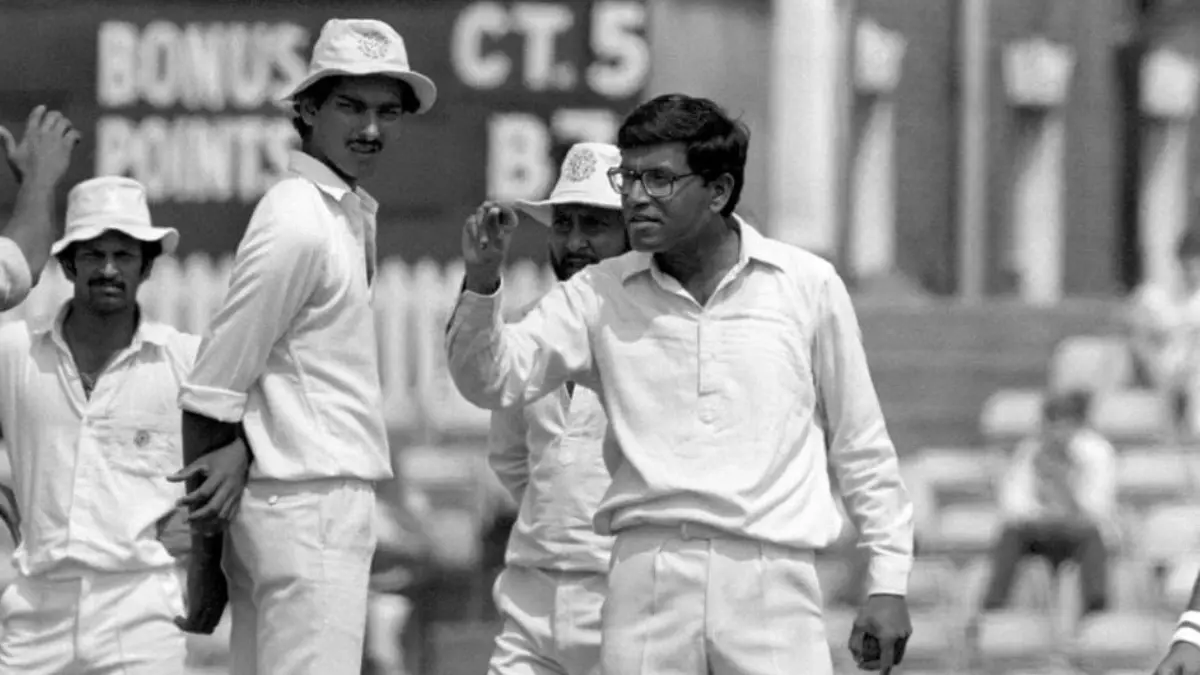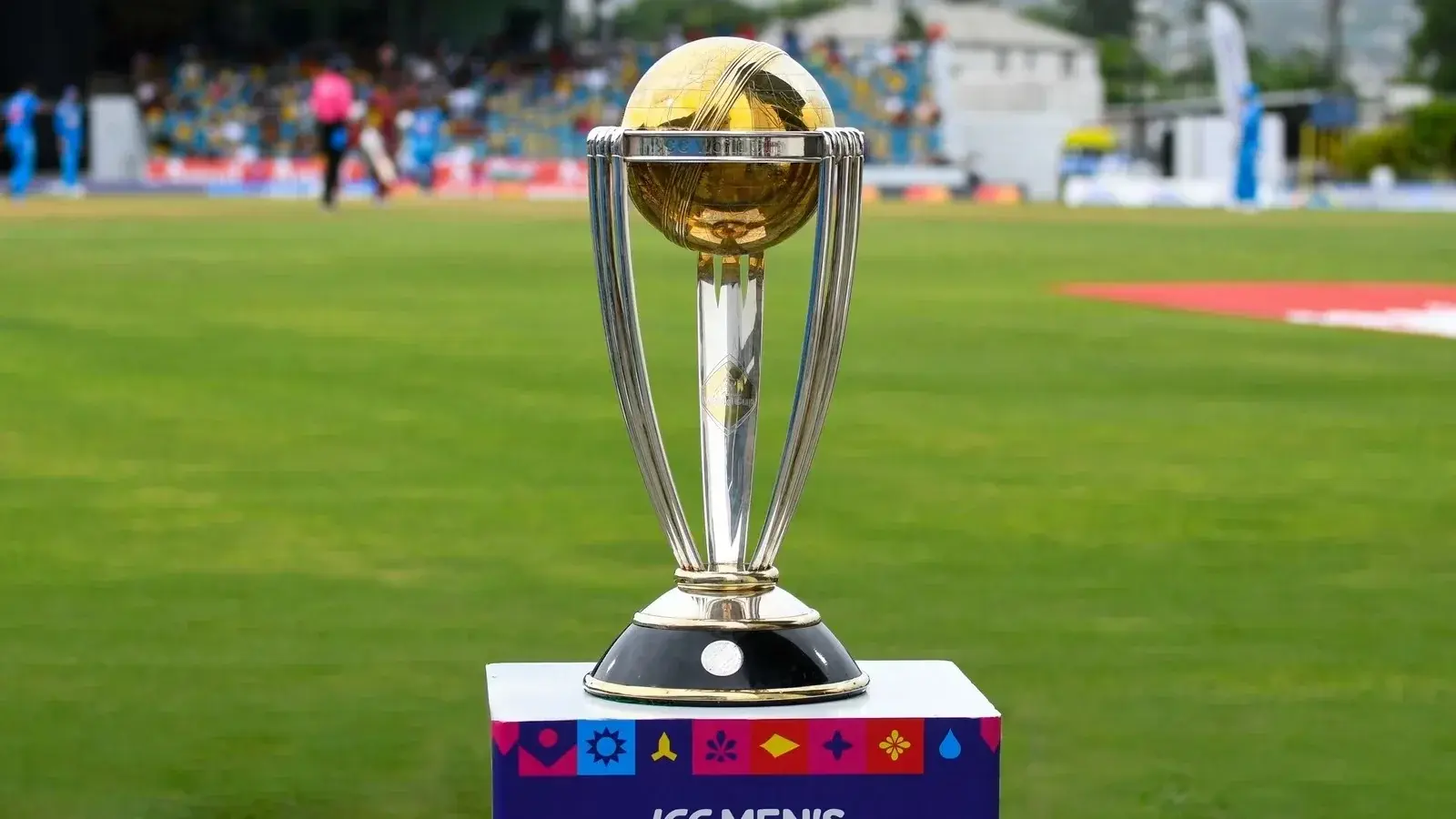“Form is temporary, class is permanent” is an addled old cliche, but like many an addled old cliche, it has the tiresome attribute of being perfectly true. It is seen at its truest in those rare – very rare – cases of a great batsman having an absolute horrorshow.
By that is not meant just a thin time of it. In the recent Ashes series Alastair Cook, Ian Bell and Kevin Petersen all performed below par but that is not so unusual. Thus, even the best players tend to fail off a bit if they carry on even a little too long.
No what is meant is something like what befell Denis Compton in Australia in 1950-51. If you held a straw poll among English cricket followers of all ages you would find a few who would vote for Compton as the greatest of English batsmen. He had inimitable panache as a batsman and immense popular appeal – a dashing Cavalier to Len Hutton’s more inscrutable Roundhead. But behind the laughter and the legendary late nights and the inventive stroke play was a formidable technique and a healthy appetite for runs. In 1950-51 Compton was at the height of his powers. He had had outstanding series against Don Bradman’s Australians in 1946-47 and 1948, batting peerlessly and fearlessly against the formidable opening pair of Ray Lindwall and Keith Miller. But in 1950-51 Compton came horribly unstuck after a serious and career – threatening knee operation. In four Tests – he missed the second Test because of injury – he made 53 runs, 23 in one innings, at an average of 7.57.
Peter May would be another contender in that best England batsmen ever vote. Tall and classically elegant he blended the style of the gentleman amateur with the grit of a true professional: he could master any attack on any surface. When he led MCC to South Africa in 1956-57, he headed the first-class averages with 1270 runs at an average of 55. But in the Tests it was a very different story. In the first three Tests his highest score was 15 and he finished the series with an average of 17. The series was drawn two-all. An even half-decent performance by May would surely have ensured an English victory.
There is no need to call for a vote to determine the two outstanding Australian batsmen of the post-war period; they are clearly Greg Chappell and Ricky Ponting. Yet each of them endured a grisly patch. Chappell, tall and elegant like May, vied with the two Richardses, viv and Barry, to be the outstanding batsman of his generation. Like Viv, he excelled in the intense pressure cooker of Kerry Packer’s World Series Cricket. On his return to “official” cricket in 1980 he carried on as before. But in 1981-82, he suffered a spectacular collapse of form, making eight ducks in fifteen consecutive innings in Tests and one day internationals against Pakistan and the West Indies, including a run of four successive ducks, two of them golden.
Ponting – a marvel of compact, fleet-footed and pragmatic batmanship – had his series horribilis in 200-01 in India. This was perhaps the greatest three-match Test series of all time, but not for Punter. Five innings, 17 runs, five dismissals to Haibajhan Singh, including three ducks.
Mohinder Amarnath is not quite in the same category as the other batsmen mentioned but what set him apart was his courage and determination against the short-pitched barrage of fast bowling inflicted on batsmen visiting the Caribbean during the early 1980s. Amarnath was outstanding on India’s tour in 1982-83. So there were high hopes when West Indies toured India in 1983-84. Hopes that were, alas, not quite realised: three matches, six innings, one run.
The remarkable thing about all these calamitous trots is that they were all just blips. Afterwards, the batsmen concerned just carried on as before(although Ponting never really conquered Harbajhan Singh or India).
We shall never know whether Graeme Smith’s run of low scores in the recently concluded epic series between South Africa and Australia was just a blip because he has chosen to retire. He made 45 runs in six innings.
Smith was the last of four genuine Titans of the game to have departed from Test cricket in the last five months. Sachin Tendulkar, Jacques Kallis and Pietersen are the others. Of course Tendulkar is in a sense a separate case: his unique status in the world’s second most populous country as well as his phenomenal achievements as a batsman over two and a half decades make comparisons difficult. But it is certainly the case that as against his two compatriots – notwithstanding Kallis’s astonishing all-round figures and Pietersen’s flair as a batsman and penchant for publicity often as damaging to his team as to himself – it will be Smith who leaves the greater mark.
Smith had a batting technique that looked all wrong and that had early critics wondering how he could possibly succeed. His twenty-seven Test centuries are a testimony to will power and hard work, as much as natural ability. He scored big runs and he score them when it mattered. His fourth innings 154 not out, out of 283 for five to win the third Test against England in 2008 was a classic case in point. The top order failed but Smith was simply not to be denied.
That wonderful innings epitomised Smith’s role, not only as batsman but as leader. In fact he captained South Africa for so long that it became impossible to separate the two roles. Astonishingly, he was only 22 when he was appointed captain. By the time he stepped down, still only 33, he was the oldest player in the side, and to an extent that can be said of few Test captains, this was “his” team.
Tendulkar was perhaps more fortunate in his choice of final opponents. Making his farewell appearance against the West Indies – it is sad to say it, but it might as well have been Bangladesh – he was able to walk off the field at the Wankhede Stadium for the last time like a conquering hero with 74 to his name. Smith, by contrast, found himself facing what, it has suddenly become clear, must be Test cricket’s most potent fast bowling partnership since Wasim Akram and Waqar Younis in the 1990s.
It can be difficult to say what causes these alarming form dips. Sometimes it is a particular bowler, like Haibajhan Singh for Ponting; May had troubles against the great off-spinner, Hugh Tayfield and the fast bowler Peter Heine. Sometimes it is a specific form of attack – short pitched bowling for Chappell and Amarnath. Sometimes it is nothing to do with the cricket at all – Compton had off-field worries apparently.
For Smith in his last series it was probably a combination. Some people said his powers were waning but it was as recently as October 2013 that he made his fifth Test double century (against Pakistan at Dubai – South Africa won, of course, to level the series). He certainly had problems against Mitchell Johnson but he was hardly alone in that. There were off-field issues – the whole retirement rigmarole and his little daughter’s health.
In the end, South Africa lost the series although they retained their place at the head of the Test rankings. The last Test, at Cape Town, was the best. Australia’s margin of victory, 245 runs, gives no hint of the tension on the final day. South Africa started the day on 71 for four needing to bat out the day to save the game. The situation was very similar to the two sides’ encounter in Adelaide two years before when South Africa had held out for a draw. This time they came tantalisingly close thanks mainly to great endurance and self-denial from A B de Villiers and J P Duminy and tremendous application and courage from Vernon Philander. In the end, in the nick of time, the relentless Ryan Harris was just too good for the tail.
They were doing it for Smith of course. There is no doubt about it. He was the sort of leader who inspires that kind of response. The contrast with the Ashes could hardly have been more glaring. England had no fewer than five opportunities to put up such resistance and they did not get close even once. Instead of fortitude and application there was ineptitude and nonchalance. One has only to think of Stuart Broad’s performance on the last day at Adelaide, and cringe.
Tendulkar and Kallis may have been greater players. But Smith will be harder to replace.
This article was published in The Island: http://www.island.lk/index.php?page_cat=article-details&page=article-details&code_title=99863




